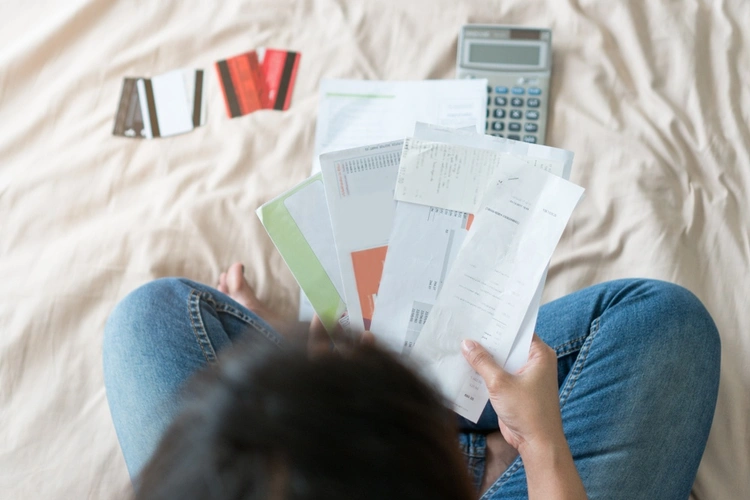Interest rate
Interest rate is an important factor to consider. In theory, the way to save the most money is to prioritise paying off the debts with the highest interest.
If you are disciplined and committed to paying off your debts, then make sure you meet all your minimum payments and funnel any extra cash you can into paying off the highest interest accounts first. Your debt situation, however, is usually complicated by a few other factors, of which we’ll explain below.
Introductory rates
Credit cards often provide introductory offers, with 0% or lower-than-usual interest rates for a set time period. This can be on a number of things, including purchases that you make, balance transfers or cash withdrawals (but check your individual terms and conditions, as fees can sometimes apply, even within an introductory offer period).
To avoid paying any interest on these debts, the best thing to do is to pay them off before the introductory rate finishes.
However, that might not be the cheapest thing to do if you have more expensive debts elsewhere. This is because you will not be charged any interest throughout that initial period, as long as you stick to the terms of the agreement. So it can make more sense to focus on clearing the debt which currently charges the highest amount of interest.
Just remember to always meet your contractual minimum payments on time, every time on your lower priority debts. Consider setting up a direct debit for at least the minimum amount so you never miss a payment.
That said, it’s worth looking into the costs of the debt beyond the introductory period if you cannot clear it in full before the end. If the rate becomes higher than that on your other existing debts, any savings may then be cancelled out by the impending higher charges.
Work out the total amount payable across the full timeframe of all your debts. This should give you a good indication of which debt is the most expensive, and which debt to pay off first.
Extra charges
Extra charges come about when you fail to meet the contractual requirements of paying back the money you have borrowed. The most common example of this is with late or missed payments, where you incur fees alongside extra interest charges (these also have a negative impact on your credit score).
However, it’s not just late or missed payment charges that can cost you. Under the agreements of certain loans, particularly secured loans, you can be charged an early repayment charge. This is typically one or two months’ interest and is typically higher the sooner you pay the loan back. You should factor in any early repayment charges to the totals paid when looking to clear your account.
Credit cards do not suffer from this, so if you are looking to clear debt and avoid these charges it may be wiser to pay that off early.
Size of the debt
There are two methods that can help with effective debt reduction – the avalanche method and the snowball method.
The avalanche method relies on paying the debt costing you the most first. This is often the debt with the highest interest. While in theory, this is the cheapest way, research has shown that it isn’t always the most effective way of paying off debt. People can often become unmotivated when they don’t see the number of debts reducing, so the snowball method was designed to counter this. This involves paying off the smallest debt first. The idea is that you’ll reduce the total number of debts owed quicker, which should motivate you to reduce the rest of your debt.
Only you know which approach will have the best results for you, so consider which method will help you stay motivated long-term.
Should I pay off debt with savings?
While some people do like to retain a nest egg in case of emergencies, there’s a strong argument for paying off your debts with your savings. If you have a large savings pot, the chances are you will earn less money in interest on it than you will be charged in interest on your debts.
This means you could save more money in the long run by using all or part of your savings to pay off your debt.
This doesn’t take into account any early repayment charges as well, so you must factor in those to any budgeting decisions.
And, again, this is a personal decision based on your own needs. While it may save you money, you may feel that the reassurance of having access to an emergency fund outweighs the benefit of the saving.
Consider your credit utilisation
One factor in calculating your credit score is your credit utilisation. This is the amount you have borrowed compared against the amount of credit you have available to you.
If you have a credit card limit of £2000 and have borrowed £1000, your credit utilisation is 50%. This figure is calculated across your total debt as well as individual accounts and impacts your credit score when it sits above or below certain thresholds.
Overdrafts and credit cards are forms of revolving credit, which means the amount of money you owe can go up and down as long as it is within an agreed limit. So paying these off, as long as you don’t adjust your limit, will improve your credit utilisation. Because personal and secured loans are not revolving credit, paying them off won’t affect it.
It’s important also to remember that lenders base their decisions on their own criteria, and they can also look at your available credit. You should consistently check your credit score in particular before making any financial decisions.
If your credit score is important for your short term financial goals (looking to get a mortgage for example) it may make more sense to focus on removing debt to boost your credit utilisation. It’s worth remembering though that your credit score can be repaired over time, so you should always prioritise money-saving decisions unless you are planning any important credit applications in the near future.
Don’t forget priority debts
Which debts you prioritise should not be confused with priority household bills. These are financial obligations with serious consequences, such as rent and council tax. As such, they need to be paid before you think about increasing the payment on any credit cards or loans.
If you’ve been threatened with legal action over a missed payment and/or default, then these should also be prioritised to avoid legal and financial ramifications.
Do I have any other options?
There’s a chance that you may be able to negotiate a better deal for the money you owe elsewhere. Transferring the debt to a low or zero interest credit card or consolidating to a loan with a lower overall interest could save you money in the long run and/or reduce your monthly payments.
If you are looking into these options, you should not only research the cost of interest but also if it can repay certain debts for you. Balance transfer credit cards, for example, usually only work by transferring existing credit card debt. For paying off loans you may need to seek out a cash transfer.
Use eligibility checkers and price comparison websites prior to making a decision, as these will only run soft checks on your credit file. When financial institutions run a hard check on you, it gets recorded on your credit report which can influence your score. Too many applications can give the impression you are overly reliant on credit, so as a rule of thumb Experian suggests you should restrict new credit applications to one every three months.
By using credit card eligibility checkers, you can learn how likely you are to be accepted beforehand without impacting your credit score.
The most important thing to work out from all this is what approach will save you the most money. Weigh up which strategy will get you quickest to being debt-free, and then follow that plan to completion.
Ocean Credit Card
See if it's a YES before you apply
- Up to £8,000 credit limit
- Checking won't affect your credit score
- Get a response in 60 seconds
Intelligent Lending Ltd (credit broker). Capital One is the exclusive lender.

Disclaimer: We make every effort to ensure content is correct when published. Information on this website doesn't constitute financial advice, and we aren't responsible for the content of any external sites.




